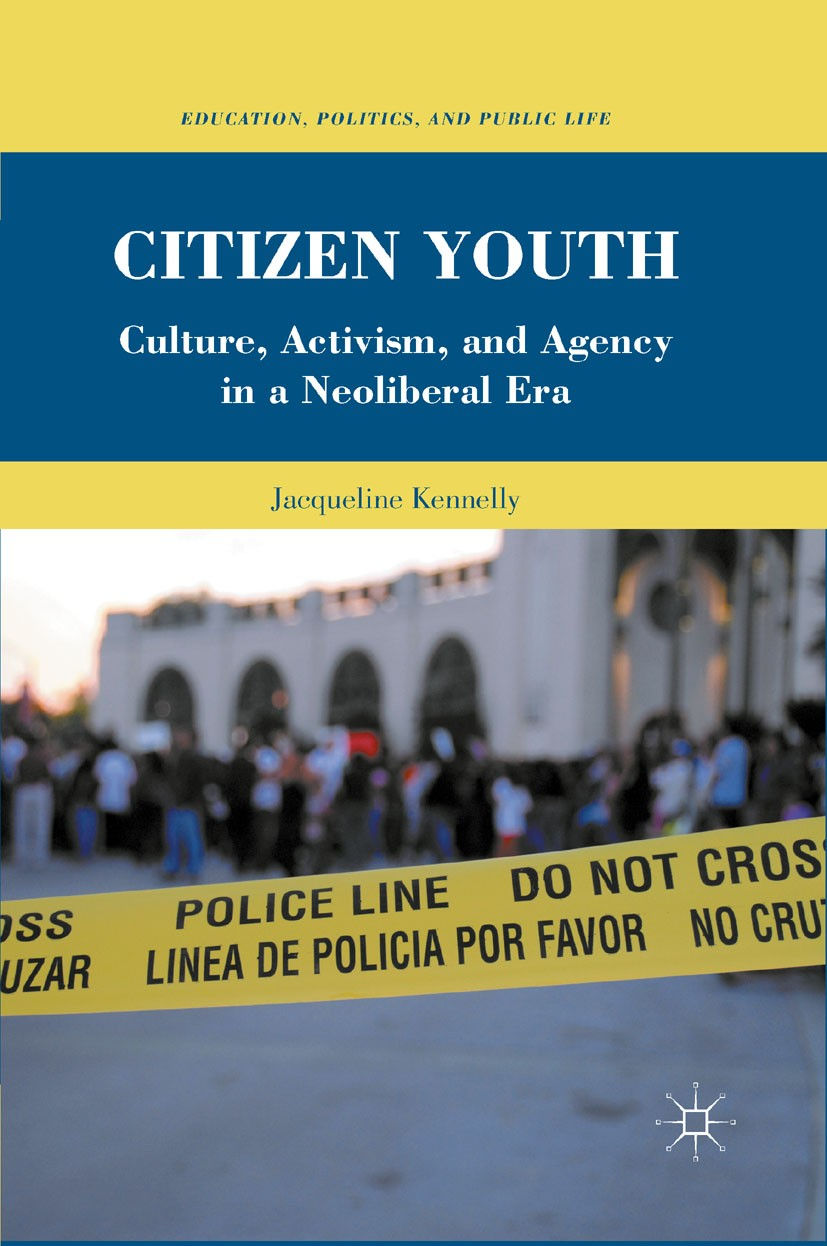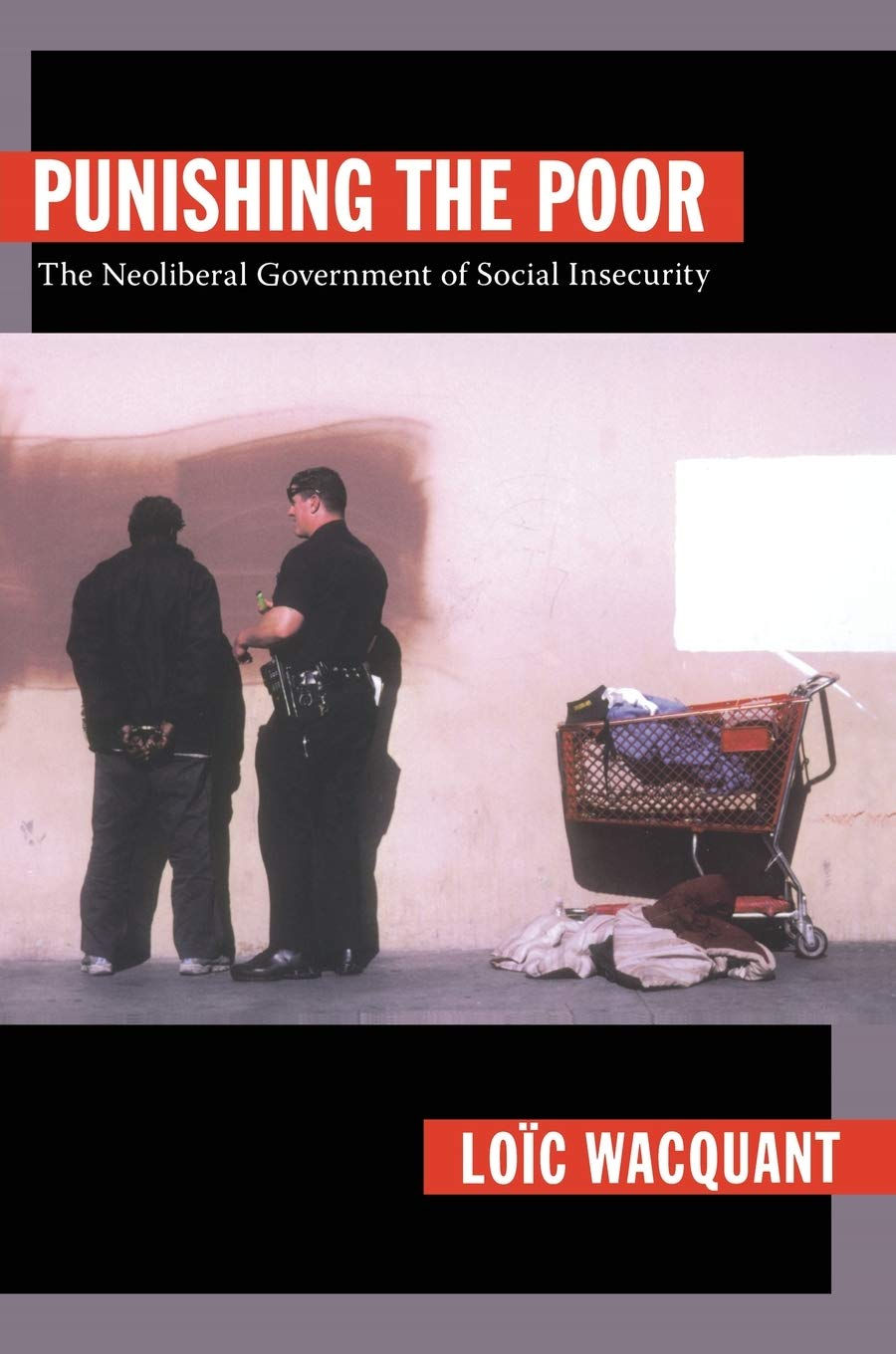The best books about how neoliberalism f*&ks up democracy
- Urban Youth Research

- Jul 6, 2022
- 4 min read
Updated: Jul 13, 2022

By Jackie Kennelly
Who am I?
I came to activism at a young age, inspired by a book given to me by a friend in Grade 10. I also grew up poor; my trajectory into university was unusual for my demographic, a fact I only discovered once I was doing my PhD in the sociology of education. By the time I started interviewing activists for my doctorate, I had a burning desire to understand how social change could happen, what democracy really looked like, and who was left out of participating. I am still trying to figure these things out. If you are, too, the books on this list might help!
I wrote...
Citizen Youth: Culture, Activism, and Agency in a Neoliberal Era
What is my book about?

What are the ties that bind the 'good youth citizen' and the youth activist in the twenty-first century? Contemporary young people are encouraged—through education and other cultural sites—to 'save the world' via community projects that resemble activism, yet increasingly risk arrest for public acts of dissent. Through an ethnographic study of young people working on activist causes across the three largest urban centres in one of the wealthiest nations in the world (Toronto, Montreal, and Vancouver, Canada), this book unpacks the effects of neoliberalism on democratic participation and explains what it means to be a certain kind of youth citizen in the twenty-first century.
Buy this book at:
The Books I Picked & Why
In the Ruins of Neoliberalism: The Rise of Antidemocratic Politics in the West
By Wendy Brown
Why this book?

I’ve loved Wendy Brown’s work since I started reading it while I was doing my PhD back in 2003. I cite her stuff in almost everything I’ve written. This recent book pulls together her vast expertise and insights about political theory, inequality, and democratic practices to explain how neoliberalism has always been anti-democratic, and how it continues to prop up authoritarian styles of leadership, like that of Donald Trump in the US. Key to this, she argues, is how neoliberalism has always made an appeal to ‘tradition,’ which smuggles in patriarchal, classist, and heterosexist notions of the nuclear family, the supremacy of Christian ideals, and a sort of rugged individualism that denies the necessity of a welfare state.
Buy this book at:
The Human Condition
By Hannah Arendt
Why this book?

Hannah Arendt is one of the most original thinkers of the twentieth century. I love her ability to weave together continental philosophy, in which she was trained, with the dilemmas of the modern world. Arendt grapples with the origins of our actions, which belong to us but also precede us, as we are all embedded in the march of history. This is fundamentally a critique of both liberalism and neoliberalism, which celebrate the individual at the expense of the relational. Arendt makes the case for why humans can only express their ‘who-ness’—their identity and humanity—by participating in the public sphere, within the ‘web of relations’ between individuals who come together at a ‘shared table.’ This is a book I return to again and again, each time getting more insight into the complex ideas of this gifted philosopher.
Buy this book at:
Punishing the Poor: The Neoliberal Government of Social Insecurity
By Loïc Wacquant
Why this book?

Wacquant was educated in France, under Pierre Bourdieu. He brings his French sensibilities and training to the United States, asking fundamental questions about the massive inequality there, how it came to be, and who it is serving. This is one of the books he has written in answer to those questions. I started teaching chapters from this book in a graduate seminar on Urban Inequality. No other scholar does such a precise job of tracing the connections between neoliberalism and inequality in the USA, which pushes poor Black men into prison and poor Black women into the welfare office. It is a sobering but powerful read that really helps you understand how neoliberalism is lived by those who suffer the most under its auspices.
Buy this book at:
Practical Reason: On the Theory of Action
By Pierre Bourdieu, Randall Johnson
Why this book?

I have an intellectual crush on Pierre Bourdieu. He has a sexy mind. Unfortunately, he passed away just as I was getting to know his work, back in 2002. Bourdieu wrote a mind-boggling number of books, but I have chosen this one as a good introduction for people who’d like to get to know his work. Practical Reason is actually made up of a series of lectures, all written relatively late in his career. They do quite a good job of accessibly summarizing his key ideas. Bourdieu supported the anti-globalization movement of the late 1990s and early 2000s, and was a vociferous critic of neoliberalism. Bourdieu’s work helps to explain how inequality is recreated across generations, and why dominant interests tend to shape the trajectory of the state.
Buy this book at:
Expulsions: Brutality and Complexity in the Global Economy
By Saskia Sassen
Why this book?

The important argument lying at the heart of this beautifully written book is that the trajectory of the current global economy, driven by neoliberal logics, is fundamentally one of expulsions: that is, expelling the poor, the biosphere, democracy, and anything else that gets in the way of maximizing profit. This book takes massive case studies—from palm oil production in Malaysia and Indonesia to water bottling by large corporations in the US—and demonstrates how they are ultimately about pushing people out instead of inviting people in. It raises important questions about who the economy is for, and what ends we are ultimately building toward as a global society. I don’t have a pithy personal story about this book; I just think you should read it.
Buy this book at:
![CentreForUrbanYouthResearch_FINAL-[Recovered]_RedBadge_Logo.png](https://static.wixstatic.com/media/93b051_2c28e06e8dbf40abbe2286237c8218d2~mv2.png/v1/fill/w_703,h_80,al_c,q_85,usm_0.66_1.00_0.01,enc_avif,quality_auto/CentreForUrbanYouthResearch_FINAL-%5BRecovered%5D_RedBadge_Logo.png)




Comments